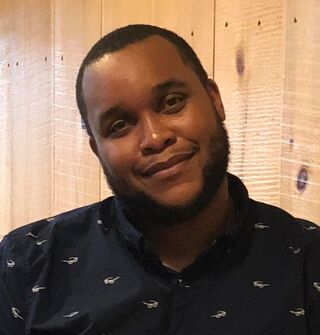Health
Transracial Adoptions During the Black Lives Matter Movement
Helping transracial adoptive families with “the talk."
Posted February 18, 2021

Author: Damon A. Pryor, LMHC, Psy.D.
Edited by Briana Reid, MA
Black mental health clinicians rapidly recognize that we will be burdened by what social scientists refer to as ‘invisible labor’─additional expectations, tasks, and responsibilities that extend beyond our job descriptions. Our existing whitewashed and Eurocentric organizational structures come with gaps and deficits that we, Black mental health professionals, are often expected to fill and fix. For me, a Black male with a doctoral degree in clinical psychology, the unique gap or deficit revealed was transracial adoption counseling. This type of counseling involves working with families from one racial or cultural background who have adopted children from another racial or cultural background. Unexpectedly, my private practice has become defined by such families seeking my clinical expertise. Approximately 50% of my cases now involve White parents who have adopted children of color.
In the past, America’s history of White supremacy led to clinicians’ encouragement of adopted children of color’s suppression of their racial/ethnic minority heritages. However, in 2020, the stark and undeniable images of police brutality disproportionately directed at people of color have pushed the need for discussions of racial/cultural identity to the forefront of the minds of many White parents of children of color. Many adoptive White parents were forced to confront images of youth with similar skin tones and features as their children being beaten up and killed by White police officers. These images and the accompanying discussions compelled many White parents to examine that their White-privileged, non-ambivalent perceptions of police officers as safe and helpful. They were now recognizing that they were ill-equipped to handle “the talk”─ways to remain safe during police interactions─that parents of color usually provide to their children of color. For adoptive White parents of children of color, these critical gaps in experience and skill may have resulted in many of their children also being ill-equipped to navigate potentially unsafe racial interactions and racial/cultural identity crises.
For clinicians of color, like me, these clinical cases create moral conflicts. On one hand, as a clinician, you are taught to maintain boundaries and shine light on areas of difficulty affecting clients. In this practice, self-disclosure is often frowned upon or discouraged. However, you are also expected to meet clients where they are at in the moment and hold a supportive space for them. So, what is a clinician of color to do when faced with adopted youth of color seeking your guidance as they struggle with racial identities? What do you say when you may be one of few people in their lives who looks like them and with whom they can openly discuss sensitive and complex racial identity issues?
Some would argue that you should encourage their White parents to discuss racial/cultural issues with their children. While I think this is an important part of the solution, it is not enough, as many of their parents may not have the needed empathy and wisdom gained from overcoming racial/cultural discrimination. Instead, I would argue that clinicians of color working with White adoptive parents also need to take a directive and relational approach, in which they fearlessly lead those parents through their racial biases, fears, and uncertainties.
An example of this is in a sentiment I shared with a client of mine who has recently started skateboarding, a metaphor, that life is like skateboarding. It is risky but if he failed to take risks, he would not have found something he loved. I also highlighted the wisdom of approaching those risks with a helmet and pads for comfort and safety. For clinicians of color whose professional roles extend beyond the safe and known areas we are trained in, I hope this metaphor resonates. Preparing for the risk of filling in historically neglected gaps is one burden of doing therapy while Black, but it may also provide important and even enriching opportunities.
Dr. Damon A. Pryor is an adjunct lecturer at Stonehill College and owner of a private clinical practice. He is trained in Trauma-Focused Cognitive Behavioral Therapy and Motivational Interviewing. Additionally, he has specialized clinical training in Global Mental Health as well as African and Caribbean Mental Health.


